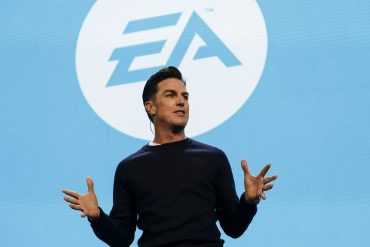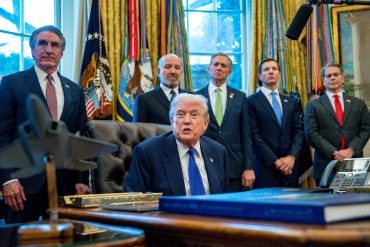
- Gaming Industry
- Private Equity
- Sovereign Wealth Funds
Electronic Arts to Go Private in $55B PIF & Silver Lake Deal
5 minute read

Electronic Arts agrees to a $55B take-private led by Saudi PIF and Silver Lake, the largest gaming buyout in history, reshaping interactive entertainment
Key Takeaways
- Electronic Arts Inc. has agreed to a $55 billion all-cash acquisition by a consortium led by Saudi Arabia’s Public Investment Fund (PIF), Silver Lake, and Affinity Partners, marking the largest sponsor-led take-private deal in history and providing EA with enhanced flexibility to pursue long-term innovation in interactive entertainment.
- Shareholders will receive $210 per share, representing a 25% premium to the unaffected stock price, underscoring the consortium’s confidence in EA’s portfolio of blockbuster franchises amid a consolidating video game industry.
- The transaction accelerates PIF’s push into global gaming as part of Saudi Arabia’s Vision 2030 diversification strategy, while positioning EA to invest aggressively in emerging technologies like AI and cloud gaming without the pressures of public market scrutiny.
Introduction
In a seismic shift for the video game industry, Electronic Arts Inc. (EA), the powerhouse behind enduring franchises like “Madden NFL,” “The Sims,” and “EA Sports FC,” has sealed its fate as a private entity. Announced on September 29, 2025, the $55 billion all-cash deal orchestrated by Saudi Arabia’s Public Investment Fund (PIF), private equity giant Silver Lake, and Jared Kushner’s Affinity Partners catapults EA into a new era of strategic autonomy. This transaction not only eclipses previous leveraged buyouts in scale but also highlights the escalating convergence of sovereign wealth, private capital, and digital entertainment.
This acquisition comes at a transformative juncture for EA, which has built a legacy of delivering extraordinary experiences to hundreds of millions of fans through its iconic intellectual properties. With the backing of PIF’s global gaming ecosystem, Silver Lake’s tech investment expertise, and Affinity Partners’ strategic networks, the deal is set to accelerate EA’s vision of blending physical and digital realms, enhancing fan engagement, and fostering innovation on an unprecedented scale.
Key Developments
The path to this landmark agreement unfolded rapidly over the final days of September 2025. Whispers of a potential buyout first surfaced on September 26, when reports indicated EA was in advanced discussions with a consortium for a leveraged buyout valued at around $50 billion. Sources familiar with the matter pointed to Silver Lake, PIF—which already held a 9.9% stake in EA since 2023—and Affinity Partners as the key players, with JPMorgan Chase advising on financing. The news sent shockwaves through financial markets, boosting EA’s shares by 15% to close at $193.35, elevating its market capitalization to approximately $48 billion.
By September 29, speculation crystallized into reality with EA’s official announcement of a definitive merger agreement. Under the terms, the consortium will acquire all outstanding shares for $210 each, a premium that reflects optimism in EA’s resilient sports and action titles amid industry slowdowns. PIF will roll over its existing stake, solidifying its role as a cornerstone investor. The deal, subject to regulatory approvals and shareholder votes, is expected to close in the first half of 2026. This follows PIF’s broader gaming forays through its Savvy Games Group, including stakes in Nintendo, Activision Blizzard (pre-Microsoft acquisition), and others, as part of a $38 billion commitment to the sector. Silver Lake, renowned for tech buyouts like Dell and Endeavor, brings its expertise in scaling digital enterprises, while Affinity Partners adds geopolitical nuance with its Middle Eastern funding ties.
Market Impact
The announcement has reverberated across global markets, underscoring the video game sector’s vulnerability to economic cycles and its allure for deep-pocketed investors. According to CNBC, EA’s stock, which had languished amid post-pandemic spending fatigue, surged on the initial reports, adding billions to its valuation overnight. Peers like Take-Two Interactive and Roblox saw modest gains, reflecting investor bets on further consolidation in an industry projected to reach $300 billion by 2027, per Newzoo data.
Broader implications extend to leveraged finance markets, where this deal—potentially the largest LBO ever—tests appetite for mega-transactions in a high-interest-rate environment. Borrowing costs could strain the consortium, but EA’s steady cash flows from live-service games like “Apex Legends” provide a buffer. For consumers, the shift might accelerate industry trends toward microtransactions and esports, as private ownership insulates EA from quarterly earnings pressures. However, it raises questions about transparency in a sector already criticized for labor practices and monetization strategies.
Strategic Insights
Going private affords EA unparalleled strategic latitude, freeing it from the volatility of public markets to double down on high-stakes bets, according to Reuters. CEO Andrew Wilson has long emphasized transforming EA into a “digital entertainment company,” with foci on AI-driven content creation and cloud gaming platforms. Under private stewardship, EA can expedite these initiatives without investor backlash over short-term R&D costs. The consortium’s composition is telling: Silver Lake’s tech acumen could steer EA toward synergies with Unity (in which it holds a stake), enhancing engine development for next-gen titles.
PIF’s involvement aligns with Saudi Arabia’s Vision 2030, channeling oil wealth into entertainment diversification. With gaming as the world’s largest media segment, PIF’s strategy mirrors its investments in esports hubs and content production, potentially integrating EA’s IPs into Saudi-backed ventures. Affinity Partners, backed by Gulf sovereign funds, adds a layer of international capital, though it invites scrutiny over geopolitical influences on creative decisions. Critically, this deal circumvents antitrust hurdles that derailed past gaming mergers, like Microsoft’s Activision saga, by avoiding horizontal consolidation.
Expert Opinions and Data
Analysts have hailed the transaction as a savvy escape hatch for EA amid a “gaming winter.” Michael Pachter of Wedbush Securities noted, “This premium validates EA’s undervalued assets in a market punishing growth stocks,” projecting annual revenues could climb to $10 billion by 2030 with private agility. Data from Statista underscores the rationale: Global video game revenues dipped 2% in 2024, but sports simulations—EA’s forte—grew 5%, buoyed by licensing deals with FIFA and NFL.
Skeptics, however, warn of risks. Joost van Dreunen, CEO of SuperData Research, cautioned in a recent interview that “private equity’s focus on efficiency could stifle creativity,” citing historical buyouts like Toys “R” Us. PIF’s gaming portfolio, valued at over $15 billion including 8.6% of Nintendo, signals aggressive expansion, but ethical concerns persist over Saudi human rights records influencing content. Market data reveals EA’s enterprise value at $55 billion exceeds peers’ multiples, with a forward P/E ratio of 22x versus the industry’s 18x.
Conclusion
Electronic Arts’ $55 billion privatization heralds a bold reconfiguration of power in interactive entertainment, blending Silicon Valley savvy with sovereign ambition. By shedding public constraints, EA stands poised to pioneer the next frontier of gaming—be it immersive AI worlds or global esports empires—while PIF cements its role as a kingmaker in digital culture.
Yet, as the deal navigates regulatory waters, it serves as a litmus test for the industry’s maturation: Can private capital unlock innovation without compromising artistic integrity? For now, this transaction not only rewards shareholders but also reimagines EA’s trajectory, ensuring its franchises endure in an ever-evolving digital arena.








